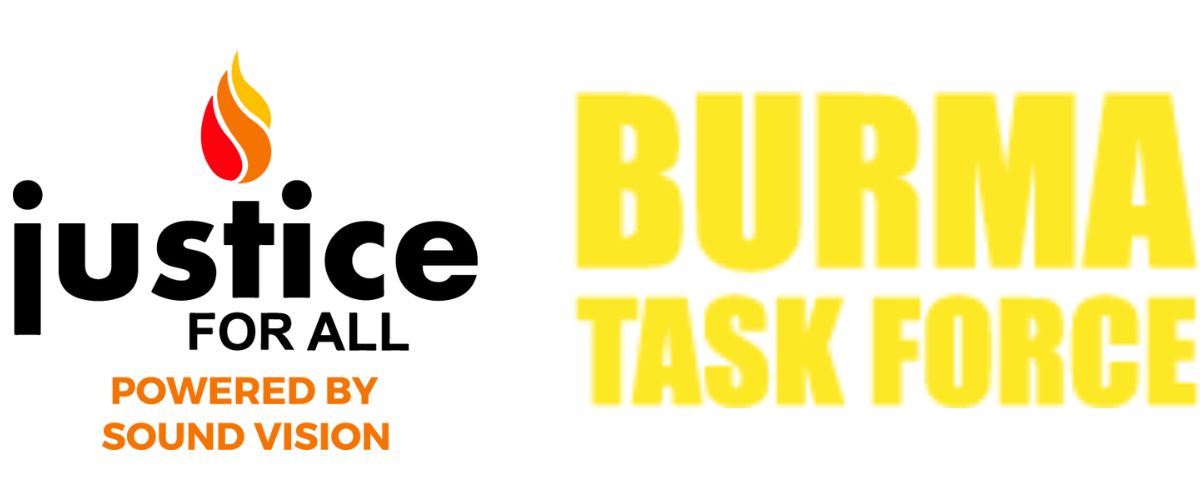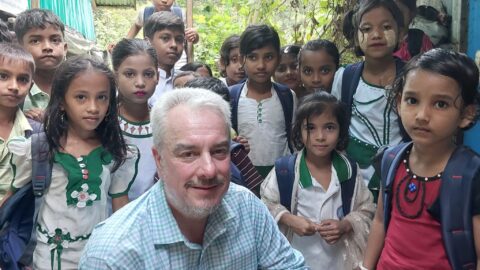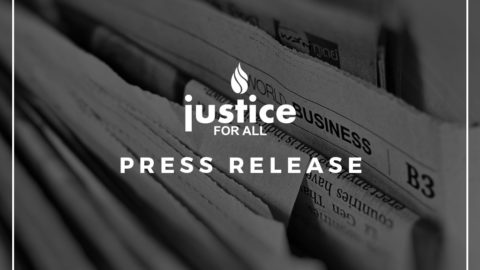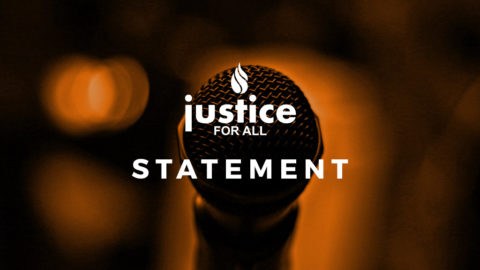In December 2024, a Justice For All delegation visited the Kutupalong refugee camp in Cox’s…
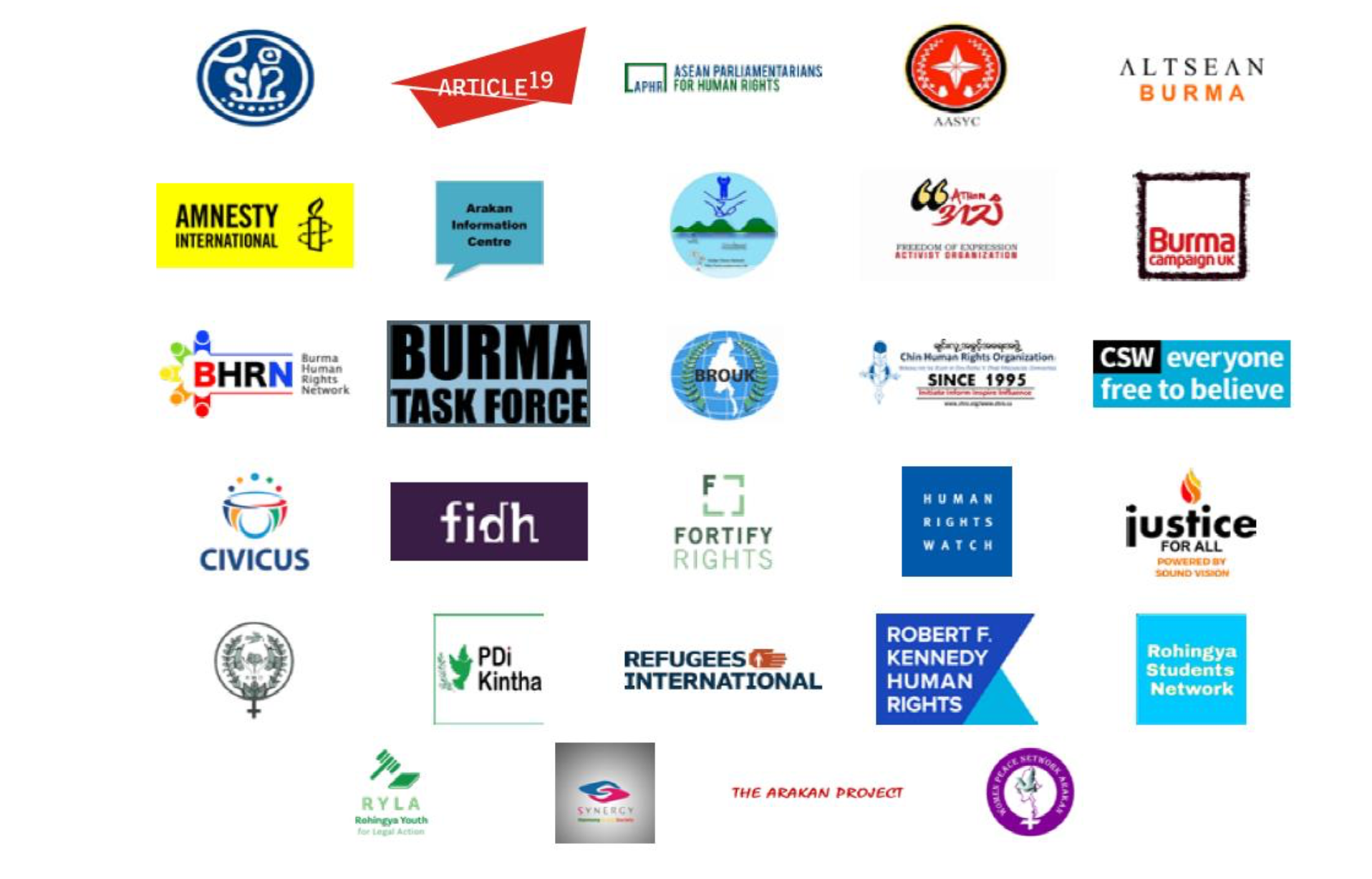
Joint Statement: Lift Internet Restrictions In Rakhine And Chin States
JOINT STATEMENT BY 29 NATIONAL AND INTERNATIONAL NON-GOVERNMENTAL ORGANIZATIONS
We, the 29 undersigned organizations, call on the Government of Myanmar to immediately lift restrictions on mobile internet communications in eight townships in Rakhine State and one township in Chin State. We are particularly concerned by the Government of Myanmar’s recent reinstatement of restrictions on mobile internet access in five townships on 3 February 2020, after lifting restrictions in those townships earlier.
We call on the Government of Myanmar to release publicly the justification for the internet shutdown and all information related to the process by which these restrictions were imposed.
The government first imposed restrictions on mobile internet communications on 21 June 2019 in Buthidaung, Kyauktaw, Maungdaw, Minbya, Mrauk-U, Myebon, Ponnagyun, and Rathedaung townships in Rakhine State and Paletwa Township in Chin State. On 1 September, the government lifted restrictions in Buthidaung, Maungdaw, Myebon, Paletwa, and Rathedaung townships.
On 3 February 2020, a telecommunications provider reported that the Myanmar Ministry of Transport and Communications ordered the reinstatement of the restrictions in those five townships. The company published a statement on its website saying that the Ministry referenced “security requirement and public interest” in issuing the order.
The almost eight-month blackout in Kyauktaw, Minbya, Mrauk-U, and Ponnagyun townships is one of the world’s longest government-imposed shutdowns of mobile internet communications.
The internet restrictions disproportionately affect civilians in conflict areas, hampering humanitarian aid operations, livelihoods, and the work of human rights monitors.
The shutdown appears to be a response by the Government of Myanmar to the ongoing conflict between the ethnic Rakhine Arakan Army and the Myanmar military. An escalation in fighting since the start of 2019 has displaced tens of thousands of civilians in conflict-affected townships in Rakhine and Chin states.
It is likely that the shutdown will also make it much more difficult to assess Myanmar’s compliance with the January 2020 ruling by the International Court of Justice, ordering “provisional measures” to protect the Rohingya community in Rakhine State from genocidal acts.
The United Nations Special Rapporteur on the situation of human rights in Myanmar Yanghee Lee said in her end of mission statement on 23 January 2020 that the restrictions imposed by the by Myanmar’s authorities “severely exacerbate” the humanitarian impact of the conflict.
Following the initial shutdown of mobile internet services in June 2019, the Special Rapporteur expressed deep concern for civilians who are “cut off and without the necessary means to communicate with people inside and outside the area.”
We join the Special Rapporteur in calling on the Government of Myanmar to immediately lift restrictions on mobile internet services in order to guarantee the right to freedom of expression, including access to information, for those in Rakhine and Chin States. We also call on the government to repeal Section 77 of the Telecommunications Law, which provides overly broad powers to the Ministry of Transport and Communications, including to direct telecommunications operators to suspend telecommunications services.
Any restrictions on service in times of emergency should be narrowly defined, subject to prior judicial approval, and reserved for exceptional circumstances.
Article 19 of the Universal Declaration of Human Rights protects the right to freedom of expression, which includes the right to “receive and impart information and ideas through any media and regardless of frontiers.” Restrictions on the right to freedom of expression must be the exception, rather than the rule, and must be provided in law; applied only in specific circumstances, namely to protect the rights and reputation of others or to ensure national security, public order, public health, or public morals; and be necessary and proportionate, that is, the least restrictive means required to achieve any of the above aims. All three requirements need to be met for a restriction to accord with international human rights law and standards.
Recognizing the internet as a “key means” for individuals to exercise this right, the U.N. Special Rapporteur on the right to freedom of opinion and expression has stated that States have a positive obligation to adopt “effective and concrete policies and strategies . . . to make the Internet widely available, accessible and affordable to all.”
In a 2016 resolution on the promotion, protection, and enjoyment of human rights on the internet, the U.N. Human Rights Council stated that it “[c]ondemns unequivocally measures to intentionally prevent or disrupt access to or dissemination of information online . . . and calls on all States to refrain from and cease such measures.”
In September 2019, the Human Rights Council called on the government of Myanmar to restore internet access to Rakhine State and to repeal Section 77 of the Telecommunications Law.
The undersigned also call on the Myanmar Government to allow humanitarian workers, independent journalists, and human rights monitors unfettered and sustained access to Rakhine and Chin States.
Signed:
- ARAKKA Foundation
- ARTICLE 19
- ASEAN Parliamentarians for Human Rights
- All Arakan Students’ and Youths’ Congress
- Alternative ASEAN Network on Burma (ALTSEAN-Burma)
- Amnesty International
- Arakan Information Center
- Arakan Rivers Network
- Athan
- Burma Campaign UK
- Burma Human Rights Network
- Burma Task Force
- Burmese Rohingya Organisation UK
- Chin Human Rights Organization
- Christian Solidarity Worldwide
- CIVICUS: World Alliance for Citizen Participation
- FIDH – International Federation for Human Rights
- Fortify Rights
- Human Rights Watch
- Justice For All
- Karen Women’s Organization
- Peace and Development Initiative – Kintha
- Refugees International
- Robert F. Kennedy Human Rights
- Rohingya Student Network
- Rohingya Youth for Legal Action
- Synergy
- The Arakan Project
- Women Peace Network
200213 Myanmar – Lift internet restrictions in Rakhine and Chin States
